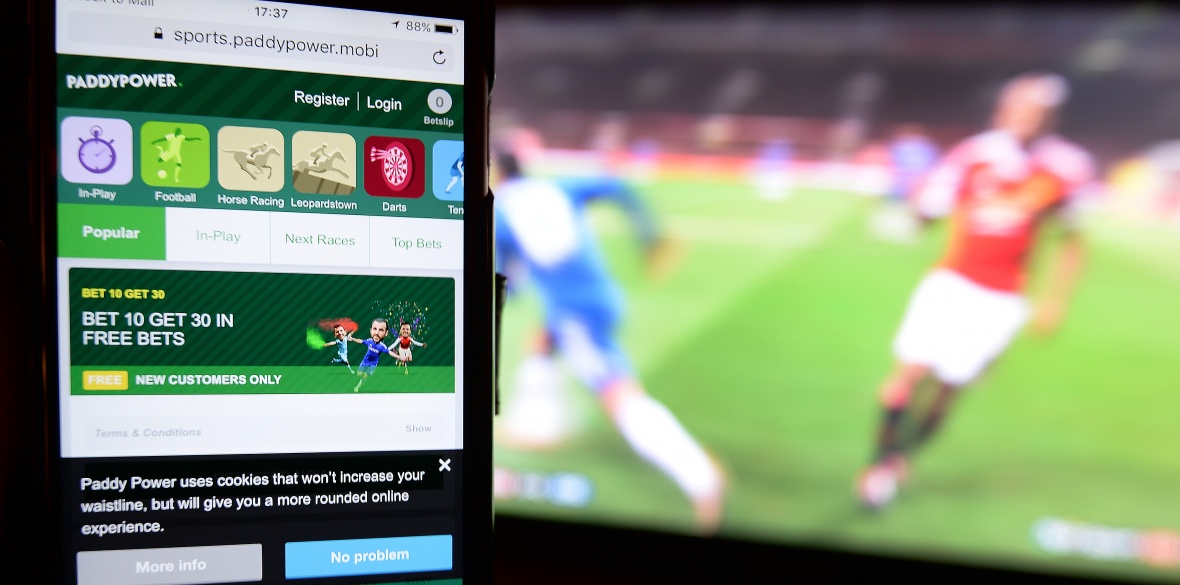This is the last article you can read this month
You can read more article this month
You can read more articles this month
Sorry your limit is up for this month
Reset on:
Please help support the Morning Star by subscribing here
News that gambling firms have agreed to a voluntary ban on advertising during live sports broadcasts was welcomed today by the Remote Gambling Association (RGA).
The move was reported by the BBC late Wednesday night but is yet to be confirmed by the RGA, the industry body that leads on issues related to advertising.
In a statement, an RGA spokesman said: “The Gambling Industry Code for Socially Responsible Advertising is reviewed annually and several options are currently being considered as the basis for possible enhancements in 2019. However, nothing has yet been finalised.”
With official approval imminent, Wright said: “Gambling firms banning advertising on TV during live sport is a welcome move and I am pleased that the sector is stepping up and responding to public concerns.
“It is vital children and vulnerable people are protected from the threat of gambling related harm. Companies must be socially responsible.”
The ban has also been treated as a racing certainty by the City, with shares in gambling firms falling heavily yesterday morning. Ladbrokes-Coral owner GVC tumbled more than 4 per cent, while Paddy Power, Betfair and William Hill fell by similar amounts.
A series of alarming studies about problem gambling in Great Britain, particularly among young people, have heaped pressure on the gambling industry to change its ways or be changed.
Last year, a Gambling Commission report revealed that there are 430,000 “problem gamblers” in Britain, with up to two million Britons being “at risk” of developing a problem.
Other studies have measured how gambling advertising around sports events has grown exponentially over the last decade, with more than 90 minutes of betting adverts broadcast immediately before, during and after World Cup games this summer.
Earlier this year, the Labour Party announced it would introduce a “whistle-to-whistle” ban on betting adverts during live sports broadcasts, as has already been introduced in countries such as Australia and Italy.
In a statement, Sarah Hanratty, chief executive of the industry’s responsible gambling body the Senet Group, said: “It’s been clear for some time now that the volume and density of advertising and sponsorship messaging from gambling companies around live sport has become unsustainable.
“This is a welcome move from the leading industry operators who are taking the initiative to respond to public concern.”
The ban will mean the end of adverts urging viewers to bet “in play” and will apply for a defined period before and after the game is broadcast.
It will not apply to games that start after the 9pm watershed, but, if the game starts before then, the ban will still be in place if the match finishes after 9pm.
The ban will not apply, however, to horse racing, as its business model is so closely entwined with the gambling industry.
And many anti-gambling campaigners will wonder if a TV ban goes far enough.
GambleAware chief executive Mar Etches said: “While we welcome this move, we still believe gambling is becoming normalised in the UK.
“It is important we remember that the marketing spend by gambling firms is five times as high online as it is on television and we should all be concerned by the recent study that showed one in eight children aged 11 to 16 follow a gambling firm on social media.”
On the other hand, there will be concerns about the impact of any ban on sport, as most professional clubs, in all sports, have gambling partners, many of them with logos on the team kit.
It is also known that the advertising revenues from gambling firms help broadcasters pay for TV rights and any move to reduce that income is likely to mean either less money for sport or higher subscription fees.
Final sign-off on the ban is needed from the Industry Group for Responsible Gambling, but that is understood to be a formality, which means advertising breaks before, during and after games on TV could be very different from as early as next month.












